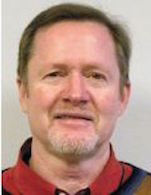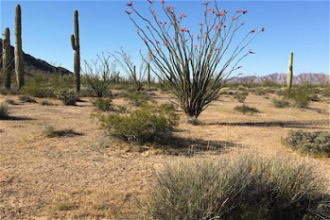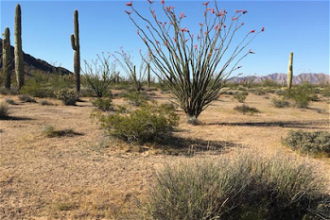Coronavirus arrives on US-Mexico border

Fr Bob Mosher SSC
Health conditions at the Casa del Migrante, the migrant shelter run by the Catholic Church in Juarez, Mexico, that holds about 600 guests at a time, are not great at this time of year, and the spreading coronavirus is about to make the situation much worse.
The infrastructure is good - beds and mats are sufficient for all guests, and there are regular visits by medical personnel. Children find spaces to play, and to participate in the art projects the Columban Sisters organise for them each day. The adult migrating people can gather, talk and walk through a patio and garden, eat hot meals each day in shifts in the dining area. Facilities for resting on mats, for personal hygiene, and the washing and hanging clothes out to dry, are provided.
But there is also a large room in the corner of the property, to keep the sick apart from the rest of the residents, and over the past couple of months, Columban Sister Virginia Mozo tells me, the number in this room has grown from 15 to over 45, with flus and colds. And now, Juarez City has its first coronavirus case.
El Paso, just over the Rio Grande river, in the US, has three cases. Both communities, commonly referred to as sister cities, have shut down their restaurants, churches, bars, and implemented similar restrictions on social gatherings.
But with most of the tens of thousands of asylum seekers and migrating people to the US forced to remain for months in Juarez - on the streets, in shelters and abandoned factories - aid groups like those coordinated by Cristina Coronado, a Juarez native and a Columban Partner in Mission, are expecting the worst.
"The middle-class families of Juarez," Cristina told me recently, "will begin to buy up all the essential items in the stores here, as the Mexican government declares a state of emergency in its third of four stages, which we expect them to do, soon." The problem has, in fact, already begun to appear. I just found out today that families that live in El Paso have begun to drive to Juarez to buy large quantities of store items like toilet paper, and hand sanitizer, since the US stores have run out.
That's why Cristina is beginning to direct the donations people are sending to her Migrant Ministry program, through the Columban Fathers, to buy and build up supplies for these vulnerable families right now, trying to get ahead of what promises to be a dangerous situation for them.
Both Cristina and the pastor of the Columban-run parish in one of Juarez's working-class residential sectors are meeting on a regular basis with a team of both local and Spanish-speaking non-Mexican volunteers who already maintain and staff offices under the cathedral of the Mexican city where migrating people can gather twice a week, receive information and food, and join handicraft-making group projects to spend their time and skills productively. These volunteers also provide activities and help out at the Casa del Migrante and other smaller shelters run by four parishes.
Some volunteers can also provide transportation to the international bridges for the asylum seekers, when they are called up to their court dates in the US, often after months of waiting between as many as six or seven sessions, waiting over a year for a judicial decision to be made. With only 3% of asylum petitions ending successfully on average, the odds are stacked high against them.
At one of the shelters in the Columban parish, eight women from four different countries and their ten children live together, and shed bitter tears when they tell visitors from the US what it's like to attend their court hearings and interviews. "I feel like they make fun of me," a woman from Honduras told us a few weeks ago. She said: "It's like a joke to the court officials. One of them was supposed to be listening to me as I told him of what I and my two children have been through, but he was on his cell phone the whole time I was talking, and even laughing from time to time with someone on the call. That's the worst thing about this whole experience. Look, I know every country has the right to determine who comes in and who doesn't. I can accept that. But we need to be heard, we need to be able to tell our story. In four visits, now, to the immigration court in El Paso, getting to the bridge at four in the morning each time, and spending the whole day there with my children, without food, I have yet to have my story heard. Really, that's all I care about. Give us the basic dignity of being heard."
Now, their worries are growing, as the coronavirus spreads, but they are grateful for what help the faith communities and volunteer organisations can provide. "I appreciate your visit," the Honduran woman has told over a dozen groups from the US that have visited over the past three months, "but please remember that we are only eight families in this one shelter; there are thousands more outside this shelter, forced to face the dangers of kidnapping and extortion in a most dangerous city, as well as the crowding and sickness at the Casa del Migrante."
Bob Mosher is a Columban priest based at the Columban Mission Center in El Paso, Texas.
LINK


















